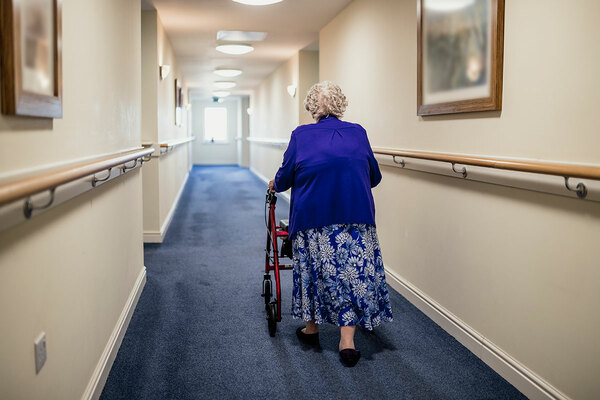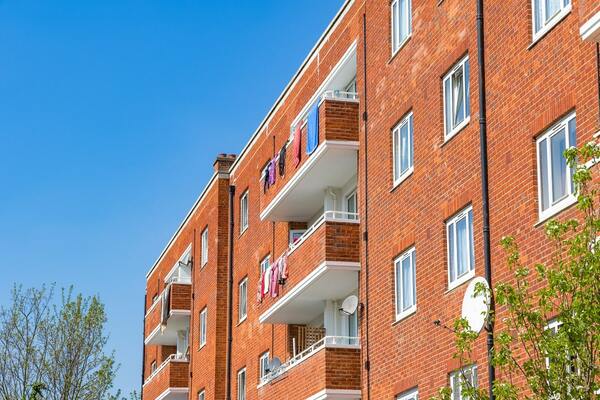You are viewing 1 of your 1 free articles
 Jules Birch
Jules BirchThe flaws in our housing market are easy to see now. We must not forget them
The coronavirus pandemic is exposing the cracks in the way we have allowed the housing market to operate. When the crisis is over we must not simply return to normal, writes Jules Birch
Week four of the coronavirus crisis and the world is still being turned upside down.
Is it really less than a month ago that ending rough sleeping by the end of this parliament – rather than a couple of weekends ago – seemed a big ask?
Or that it felt like it would take months, possibly years, of campaigning to get the government to restore Local Housing Allowance (LHA) to something like the level of rents?
Or even that it was possible to buy a flat or a house?
Long-held assumptions about the way we run our housing system have been turned on their head by the crisis.
Did we really spend most of the past 30 years promoting a tenure that allowed tenants to be evicted for no reason on two months’ notice?
Why did we allow thousands of homes to be turned into short-term holiday lets with no thought to the consequences for rents and homelessness?
And why did we condemn millions of workers who we now see as essential to daily life to high-rent, insecure homes to go with their low-wage, insecure jobs?
The answers to all of these questions, and more, may seem obvious now in the eye of the storm and it may seem like there can be no going back now.
But recent history suggests a need for caution. The global financial crisis, for example, seemed to signal the end of a financialised world that put profit before people. Not on recent evidence.
The immediate concern for housing after 2008 was to stop a market downturn becoming a crash and a rerun of the early 1990s, with many big house builders and housing associations as collateral damage.
In the event, the medicine of record low interest rates sent the prices of assets, including houses, soaring and the crisis created buying opportunities for giant financial corporations.
House builders were bailed out by the Help to Buy and cuts in red tape and big associations went from strength to strength.
If that crisis now seems minor by comparison with the current one, then the two world wars offer contrasting lessons.
Go back to the beginning of the last century: soldiers who had survived the trenches returned home in middle of the last pandemic to hit the UK to be promised ‘homes fit for heroes’. The result was the Addison Act that established the principles for council housing for the rest of the century. But it is often forgotten that within two years the man responsible for it was resigning in protest as his programme was scrapped.
That experience, and what followed in the 1930s, fuelled the demand for change that grew during World War II and developed after 1945 into a political consensus that was to last for more than 30 years.
The point is that what seems obvious in a crisis may or may not play out that way once it is over and normal politics takes over.
Back with the coronavirus crisis, those temporary fixes to the housing system do seem to be having some success, but they are still a long way from being permanent solutions.
Local authorities have scrambled to find self-contained accommodation for rough sleepers but there are fears of a second wave of homelessness, and hotel rooms, sleeping pods and tower blocks with serious structural issues are not a long-term answer.
For those who are housed, the crisis has revealed the importance of indoor and outside space and could raise longer-term questions about our emphasis on high-density development.
“Those temporary fixes to the housing system do seem to be having some success, but they are still a long way from being permanent solutions”
The LHA was restored to cover the cheapest 30% of local rents but that still leaves most of the private rental market unaffordable. In 2010 it covered the cheapest 50%, and even that increase will not help those affected by the benefit cap – it will mean more people being trapped by it.
Universal Credit rates have been increased but there is still a five-week wait for the first payment.
That increase in the notice period for evictions has been backed up by a halt to possession actions in the courts but eventually they will end.
As unemployment rises, the risks of a wave of evictions and homelessness will grow into the autumn without a stronger safety net.
And what happens when the housing market emerges from the deep freeze? Will falling house prices, negative equity and repossessions of homeowners trump all that concern about renters and homeless people?
Or will we fund councils and housing associations to buy unsold homes for those who need them and make a social housebuilding programme a key part of the recovery?
It seems obvious now that there might be something wrong with a society in which footballers can earn more in a day or even an hour than nurses do in a year.
Or that shelf stackers, bus drivers, care workers and all those we now realise are essential to daily life deserve a house that is a home rather than a property or investment.
But what will our choices be in the long term?
Jules Birch, columnist, Inside Housing
Sign up for our daily newsletter
Already have an account? Click here to manage your newsletters




